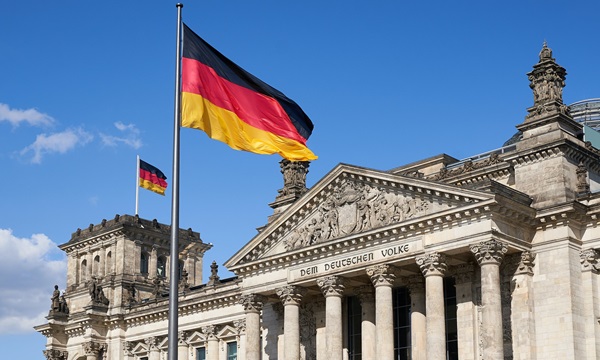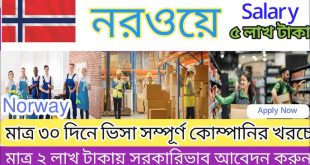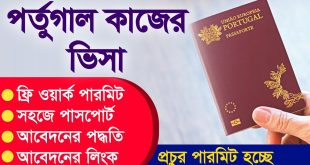Germany, renowned for its robust economy and diverse job opportunities, is a magnet for skilled professionals worldwide. Notably, Germany has 21 visa categories to work, each tailored to various professional needs and circumstances. This comprehensive guide delves into these categories, helping potential applicants navigate the process with ease.

Why Germany?
Before exploring the visa categories, it’s crucial to understand why Germany is a top destination for international talent. With its strong industrial base, thriving tech scene, and commitment to innovation, Germany offers a wealth of opportunities for career growth and development.
The 21 Visa Categories
- General Employment Visa: For those with a job offer in Germany, fitting the general qualifications.
- Specialist Professional Visa: Targeted at individuals with specialized skills in fields like IT, engineering, or science.
- Freelancer Visa: Ideal for self-employed individuals or freelancers with a business plan and clients in Germany.
- Job Seeker Visa: This allows individuals to enter Germany for job hunting, provided they have the necessary qualifications.
- Blue Card EU: For highly qualified non-EU nationals with a job offer and a certain salary threshold.
- Training/Internship Visa: Aimed at individuals seeking vocational training or internships in Germany.
- Working Holiday Visa: For young adults from certain countries, allowing them to work and travel in Germany.
- Researcher Visa: For scientists and researchers working on specific projects in German institutions.
- Seasonal Work Visa: For employment in seasonal industries like agriculture or tourism.
- Au Pair Visa: For young adults looking to live with a German family and assist with childcare or light housework.
- Artist Visa: Designed for artists and cultural professionals.
- Professional Athlete Visa: For athletes contracted with German sports clubs.
- ICT Card: For intra-corporate transferees within multinational companies.
- Mobile ICT Card: For employees of international companies transferred to a branch in Germany.
- EU Blue Card: Similar to the Blue Card EU, with some differences in conditions and benefits.
- Family Reunion Visa: For family members of individuals already working in Germany.
- Researcher Mobility Visa: For researchers participating in cross-border projects.
- Cross-border Worker Visa: For residents of neighboring countries working in Germany.
- Corporate Secondment Visa: For employees sent by their employer to work in a German branch.
- Humanitarian Work Visa: For individuals engaged in non-profit or volunteer work.
- Student Work Visa: For international students in Germany wanting to work part-time.
Application Process
The application process for each visa category varies, but generally includes submitting a visa application form, passport, photographs, proof of qualification, and a job offer or contract (if applicable). Some categories may require additional documents like a business plan or proof of financial stability.
How to Apply for a German work visa for Bangladeshi People
Applying for a German work visa as a Bangladeshi national involves a series of steps designed to ensure a smooth and successful application process. Initially, you need to secure a job offer from a German employer. Once you have this, the next step is to gather the necessary documents, which typically include a valid passport, proof of your employment contract or binding job offer in Germany, and evidence of your qualifications. It’s also essential to have health insurance coverage for your stay in Germany. Before submitting your application, you must make an appointment at the German Embassy in Dhaka. During this appointment, you will submit your documents and may need to undergo an interview to further assess your eligibility.
It’s recommended to check the embassy’s website for the most current information regarding visa requirements and the application process, as these can change. Additionally, proficiency in the German language, while not always mandatory, is highly beneficial and sometimes required, depending on the job. Preparing thoroughly and understanding the specific requirements for Bangladeshi applicants will increase the chances of a successful visa application.
General Requirements
Applying for a German work visa requires careful attention to a set of general requirements. These requirements are designed to ensure that applicants are well-suited for employment in Germany and can sustain themselves during their stay. Here are the key elements typically involved in the application process:
- Valid Passport: Applicants must possess a valid passport from their home country.
- Job Offer in Germany: A confirmed job offer from a German employer is crucial. This includes a contract or binding letter of intent from the employer in Germany.
- Qualification Proof: Documentation proving your qualifications for the job, such as university diplomas or professional certificates, is required.
- Visa Application Form: A completed and signed visa application form specific to the work visa category is necessary.
- Biometric Photos: Recent biometric photos that meet the required standards.
- Health Insurance: Proof of health insurance coverage for your stay in Germany. This could be a travel insurance covering the initial period of your stay, with the plan to switch to a German health insurance once you are in Germany.
- Financial Stability: Evidence that you can support yourself financially during your stay. This can sometimes be covered by the job offer itself.
- Personal Interview: A personal interview at the German embassy or consulate in your home country is often required.
- Fee Payment: Payment of the visa application fee.
- Declaration of Accuracy of Information: A signed form declaring that all information and documents provided are true and complete.
- Additional Documents: Depending on the specific job or visa category, additional documents might be required. This could include a CV, a cover letter, reference letters from previous employers, or a portfolio of work (for artists, designers, etc.).
It’s important to note that these are general requirements and specific visa categories might have additional criteria. For instance, the EU Blue Card, aimed at highly skilled professionals, has specific salary thresholds and educational requirements. Always check the current requirements with the German embassy or consulate in your home country, as regulations and procedures can change.
Conclusion
Navigating Germany’s 21 visa categories to work can seem daunting, but understanding each category’s specific requirements and processes is key to a successful application. With the right preparation and knowledge, skilled professionals can unlock the doors to a thriving career in Germany.


